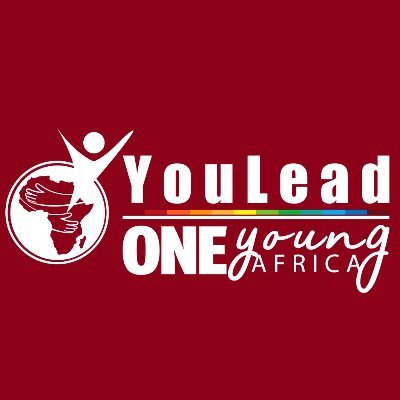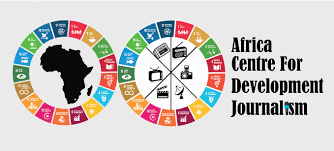INTERVIEW | How to foster youth inclusion in AfCFTA’s implementation – Ivan Atuyambe
Ivan Atuyambe is the founder of YouLead Africa initiative, focused on bridging the gap between young people, civil society, governments and private sector in Africa.
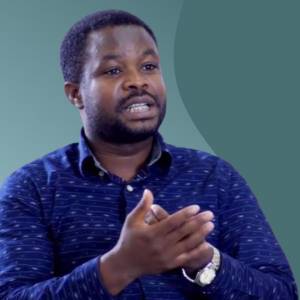
By Adam Alqali
Newspage: YouLead Africa is one of the continent’s leading initiatives fostering cooperation among Africa’s young leaders. How did it came about?
Atuyambe: I currently serve as head of programs and partnerships at the MS Training Centre for Development Cooperation (MS-TCDC), an over fifty-year-old bilateral development cooperation project between the governments of Denmark and Tanzania, focused on building the capacity of governments and development workers to foster good governance and sustainable development in Africa.
Due to my passion for advancing youth voices, I saw the need for MS-TCDC to respond to the needs of Africa’s young people. So, in 2017 I pushed for the creation of a collective African youth voices initiative which started as YouLead Africa Summit and has grown to become the YouLead Africa Youth Leadership Program, a flagship initiative building the leadership capacity of young Africans.
We were initially focused on the East African Community (EAC) before expanding into the African continent as a whole, partnering with youth-led and youth-focused entities. YouLead Africa is a multi-stakeholder platform fostering engagement between government and civil society; having realized the gap between government and civil society hence the government’s view of civil society actors as mere noisemakers, at the detriment of young people.
Thus, our approach is bridging the gap between young people, civil society, the public and private sectors, so as to ensure youth voices are heard by policymakers. To this end, we have created a unique multi-stakeholder space for young leaders, civil society, private sector and policymakers to speak to each other and shape a common agenda.
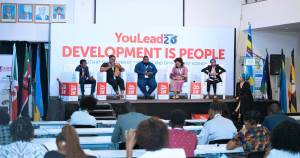
Newspage: The YouLead summit has grown to become Africa’s largest and most diverse youth forum. What are you doing to further strengthen the Summit’s position as the go-to event for all youth-related issues on the continent?
Atuyambe: For the last 20 to 25 years, there has been remarkable progress in establishing policy frameworks and institutions to take care of the needs and aspirations of young people across Africa. Structurally, almost every country has a youth policy, a specialized agency, and a ministry for youth affairs dealing with youth issues. However, the challenge was that these policies were not being implemented; so we needed to move from initiating policies to action.
Accordingly, we explored the possibility of engaging one country after another but decided on taking advantage of grouping of countries through the Regional Economic Communities (RECs) to engage the countries collectively. We decided to adopt the EAC as our pilot REC and discovered as a regional block it had a regional youth programme and a youth policy; however they were not result-oriented hence we decided to change that.
Our findings revealed the EAC’s 2013 youth policy mandated its secretary-general to build networks and convene an annual dialogue with youths so that their voices will shape the block’s agenda for regional integration. That was how the YouLead summit was born as a platform for young people to dialogue with regional and national policymakers including parliamentarians who are not easy to access within their respective countries.
Bringing together such a large gathering of young people fosters regional integration. These were the objectives around which we started the annual YouLead summit in 2017 and by 2019 we had transformed YouLead from being a mere summit by coming up with a mechanism that ensures each edition of the summit produces a post-summit agenda. We then initiated the YouLead consortium which mandates the youth-led organisations participating in the summit to implement the post-summit agenda.
So YouLead is not just a summit but a full-fledged programme; the summit is our annual flagship convening which celebrate our achievements of the previous year and share our results with the wider community at the end of which we set priorities for the succeeding year through a post-summit agenda tied with implementable activities and interventions at the end of which we report back on progress in the subsequent summit.
Because our East African youth engagement model was being admired by stakeholders around the continent we began receiving requests to go continental, however we lacked the resources and presence across all the regions of the continent. So, we identified likeminded organisations across the five regions of Africa, signed agreements with each of them and subsequently succeeded in replicating our model across the continent.
In terms of YouLead summit’s position as the continent’s signature youth event, I am glad to say our summit is the only African youth event that deliberately accommodates all issues – it is multi-thematic. One of the unique aspects of the YouLead summit is the development partners’ roundtable which brings together young people, development partners and policymakers.
The roundtable affords young people the platform to hold the partners accountable for their youth-focused interventions on the continent just as it also affords the partners the opportunity to receive feedbacks and refine their strategies and get their priorities right. YouLead summits also provide an opportunity for governments to account for the development aid they receive for youth programming.
Structurally, while other summits comprise of plenary sessions and then breakout sessions and workshops, what we have at YouLead summits are plenaries and forums on all youth-related thematic issues which is a unique feature of our summits.
Among others, we have the Under 40 Political Leaders Forum which brings together young political leaders and older political leaders for intergenerational dialogues on the future of Africa from different perspectives, namely political governance, democratization and rule of law. The Forum examines Africa’s political environment, how young people are affected by it and how they can entrench themselves as active players and make their voices heard.
Second is the Under 40 Business Leader’s Forum which looks at the continent’s economic policy environment and whether or not it is favourable for youth-led enterprises to compete, as well as exploring the necessary support for youth businesses to thrive in the economic space. Third is the Gender Equality Forum, focusing on intergenerational justice and what equality means to young people, as well as issues around equal access to opportunities for all genders.
The fourth is the Under 40 Peace Forum, which looks at how conflict affects young people and how they can be agents of change by preventing and transforming conflicts towards building sustainable peace. You can see that the summit is all-encompassing, covering issues around equality, development and economic policy, peace and security and politics. The unique splitting of our forums according to the different public affairs issues is the unique selling point of the YouLead summit.
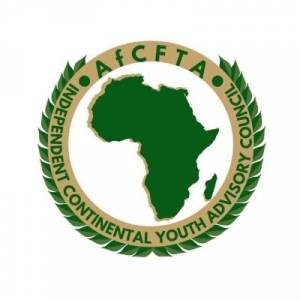
Newspage: The major outcome of YouLead Africa’s 2021 continental bootcamp for young business leaders and policymakers on AfCFTA was the creation of the Independent Continental Youth Advisory Council on AfCFTA (ICOYACA). How crucial is the role of young people in the AfCFTA?
Atuyambe: The AfCFTA came with a lot of euphoria and everyone was saying it was the best thing to ever happen to Africa and young people. But looking at the agreement establishing the AfCFTA, we realised youths were mentioned only once in the entire document. We also looked at the parties involved in negotiating the agreement because, to a large extent, those involved determine who benefits from the outcome of the negotiations.
Our findings showed the agreement was negotiated by politicians and technocrats while youths were left out. Because the negotiators were trade experts, they were focused on technical issues and not social matters. Youth councils, civil societies, youth parliamentarians and youth ministries were not involved or consulted, which is why the agreement does not address Africa’s demographic diversity.
We therefore tried to establish the fact that young people were left out in the negotiation of the agreement, which meant they might also be left out of benefiting from the dividends of its implementation. In this direction, we conducted a continental study on youth inclusion in the AfCFTA process to establish evidence of youth inclusion or lack of it so as to determine young people’s role in the AfCFTA, going forward.
The study revealed the AfCFTA negotiators may not have had an idea of how to engage youths in the process, while the youth themselves may not be have been aware of the agreement and how relevant it was to their lives. Based on these findings, we put together a continental bootcamp bringing together the AfCFTA negotiators at national and continental levels, on the one hand, and young business leaders, on the other hand, to devise strategies for youth inclusion in AfCFTA’s implementation.
The bootcamp was necessary because the next phase of the negotiations would include a Protocol on Women and Youths in the AfCFTA. Hence, it was meant to ensure future protocols exhaustively capture the aspirations and needs of the youths. Another major finding of the study was that the AfCFTA process, so far, completely eliminates youths because none of the traditional youth structures qualify as representatives, or to be represented in the negotiation process.
How can you integrate young people if their traditional structures like young parliamentarians and youth councils are not party to the negotiations? The bootcamp tried to come up with strategies for addressing these gaps and explored necessary strategies for mainstreaming youths in the AfCFTA process, among other relevant issues like the knowledge gap about the agreement among youths.
Thus, one of the ideas raised was to advocate to the AfCFTA Secretariat the need to create an AfCFTA Youth Council. However, since the creation of such a council could take time, we decided to come up with the Independent Continental Youth Advisory Council on AfCFTA (ICOYACA) to bridge the gap, in the meantime.
The fact is, most of our apex business bodies like the business councils and chambers of commerce lack functional youth wings, which means even when they say apex business bodies will play an active role in the AfCFTA, they will only serve the interest of big corporations – and not young business leaders and SMEs. This is why we also decided to support the creation of the Africa Under40 CEOs and Entrepreneurs Network (AFRICEN), parallel to the African Business Council (AfBC).
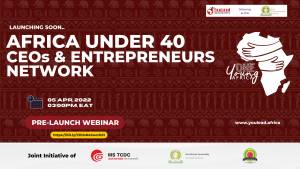
Newspage: You will be launching the Africa Under40 CEOs and Entrepreneurs Network (AFRICEN) come April 29. Tell us more about this network?
Atuyambe: The AfCFTA is supposed to advance Africa’s economic transformation by creating an enabling business environment and fostering intra-African trade. Now, who is involved in trade? It is a business enterprise. Who is facilitating the business? It is the government through its agencies. What businesses are they facilitating? Based on our studies, only big businesses are likely to benefit from the AfCFTA – unless we change the game!
Why? Because they are the ones with the capacity, connections and resources to establish their operations all over Africa and trade across the continent. At the heart of doing business are the apex business bodies in the form of business councils, chambers of commerce, manufacturers associations, among others, which only take care of the needs of big businesses.
As trading under the AfCFTA begins, young people’s business interests are being left out because chambers of commerce and business councils which are supposed to negotiate for business communities are not all-inclusive. So how will youth business interests be protected? This is why young business people need to organize themselves into one voice to negotiate for their own benefits from the AfCFTA, hence the creation of the Africa Under40 CEOs and Entrepreneurs Network (AFRICEN).
Editor’s note: This interview has been edited for length and clarity.

